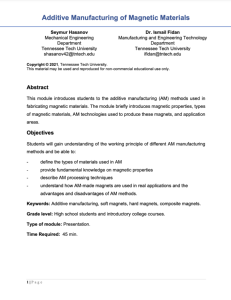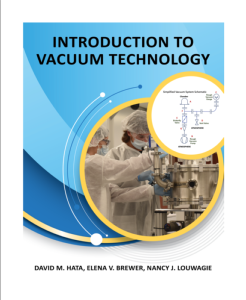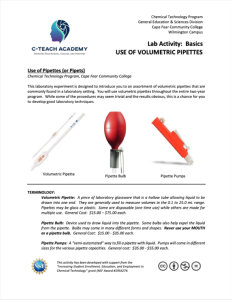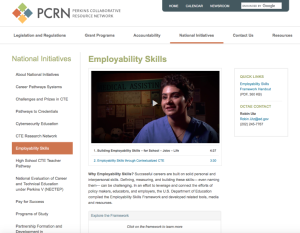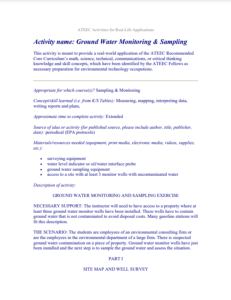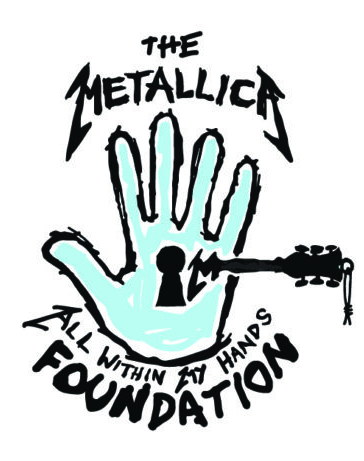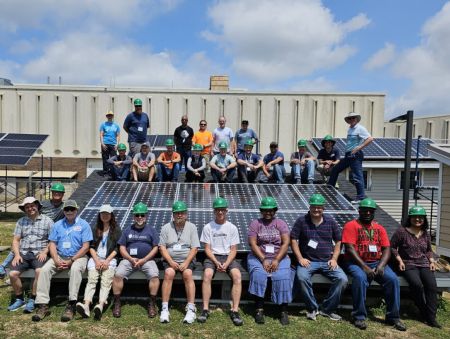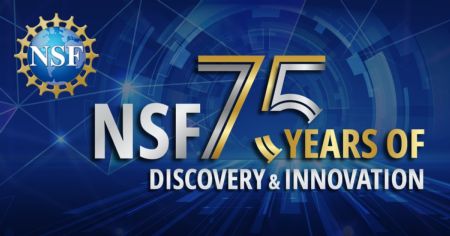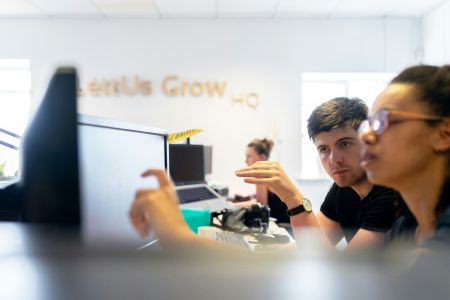ATE is Advanced Technological Education. With an emphasis on two-year colleges, the National Science Foundation's ATE program focuses on the education of technicians for the high-technology fields that drive our nation's economy.
NICE Conference
Conference
June 3 Dallas, TX
This year’s conference theme “Strengthening Ecosystems: Aligning Stakeholders to Bridge the Cybersecurity Workforce Gap” highlights the collective effort to strengthen the cybersecurity landscape. By joining forces with key partners, we can foster a more robust cybersecurity ecosystem to bridge the workforce gap.
(View More)
BIO International Convention
Conference
June 3 San Diego, CA
BIO 2024 is heading back West to San Diego, CA at the San Diego Convention Center. This conference features innovative programming around the current and future state of biotech. Including areas like therapeutic frontiers, the business of biotech, regulatory and policy outlooks, and human capital.
Also, take part in BIO One-on-One Partnering to find potential business partners and request meetings through our easy-to-use online system. You can expect to find senior biotech executives, business development leaders, and investors from premier firms participating.
(View More)
GRRATE Summer Institute - Archer
Student Event
June 3 Archer, FL
Rising 9th - 12th grade students can attend an 8-day summer STEM camp at one of the five Santa Fe College Academic Centers. The summer 2024 curriculum will cover hands-on learning for rocketry, where students can learn to design, build and launch rockets along with improving math skills.
There will be no cost for this program for campers and GRRATE is excited about getting students thinking about careers in STEM (Science, Technology, Engineering and Math) technical fields after graduation.
This is an 8-day camp offered in five locations from 9 a.m. - 3 p.m.
- Andrews Center (Starke) - June 24 - July 5, 2024
- Blount Center (Downtown Gainesville) - June 17 - 27, 2024
- Davis Center (Archer) - June 3 - 13, 2024
- Perry Center (Alachua) - July 15 - 25, 2024
- Watson Center (Keystone Heights) - July 15 - 25, 2024
(View More)
2024 PTI Conference
Conference
June 4 Portland, ME
The 2024 Postsecondary Disability Training Institute (PTI) Collaborative on Postsecondary Education and Disability Conference will be taking place from June 4th – 7th in Portland, Maine. The objective of the Training Institute is to assist concerned professionals to meet the unique needs of college students with disabilities. Participants can select sessions about a wide range of cutting-edge topics in variety of formats, including 3-day strands, single sessions, poster presentations and pre-institute sessions. All formats provide participants with in-depth information and adequate time for questions and follow-up activities.
Participants also have opportunities to share information and network with each other at various activities throughout the week.
(View More)
University of Minnesota: Micro and Nanotechnology Health & Safety Workshop 2024
Workshop
June 4 Minneapolis, MN
This summer MNT-EC is offering a three-day workshop in partnership with the University of Minnesota – Environmental Health Sciences Division. Topics currently planned for each day.
- Occupational Hygiene Principles Applied to MNT
- Measurement of Airborne and Colloidal MNT Particles
- Preventing Exposures to MNT Particles
- Practical Applications of MNT Health and Safety Principles
Offered by the University’s Environmental Health Sciences Division and its Nano Center, the MNT Health and Safety workshop will cover safety practices in the instructional laboratory, including understanding micro/nanoparticle properties, selecting and using personal protective equipment, and safely carrying out chemical syntheses of nanomaterials.
(View More)
Water, Water Everywhere - Nanotechnology Applications (Zoom Workshop)
Workshop
June 4 Online
The exponential increase in nanotechnology research and equipment had led to a new level of understanding of the world around us. That understanding is resulting in new applications and products.
These include glaucoma detection based on the structure in a butterfly's wing, shark skin structures applied to airplane wings that reduces air friction and increases fuel efficiency and small stations that pull water out of desert air. The research and multiple applications rely on macro level traditional science concepts as well as phenomena that only occurs at the nanoscale. This workshop will investigate several examples of nature's applications of nanoscale phenomena and how researchers are applying that knowledge to new products and applications. Education content applicable for integration into traditional science courses will be presented.
Presenter: Deb Newberry
(View More)
Mentor Up Workshop
Workshop
June 5 Online
Participants in this workshop will learn about the NSF Advanced Technological Education (ATE) program and how to most effectively apply for grant funding. Faculty must propose a specific project to improve an ATE-eligible technical program in a one page proposal. One-page proposals will be reviewed through April 1st or until all spaces are full. Proposals will be either accepted or sent back for corrections and the website will remain open until the workshop and a waiting list are full. Workshop activities will include presentations; planning and writing sessions with mentors who have had extensive experience with ATE and NSF; and networking with colleagues from similar institutions around the country. Two faculty from each college can receive stipend support.
(View More)
2024 Information Security Summit
Summit
June 6 Wellesley Hills, MA
Presented by Towerwall, Inc. and Massachusetts Bay Community College. Join the 2024 Information Security Summit, a must-attend event for all tech enthusiasts and cybersecurity professionals! This in-person summit will be held at the MassBay Community College Wellesley Hills Campus in Wellesley, MA, USA. Get ready to dive into the latest trends, exchange knowledge, and network with industry experts. Don't miss this opportunity to enhance your understanding of information security and stay ahead in the ever-evolving digital world.
Agenda:
- From HAL to Hero: AI’s Journey in Cybersecurity
- The Policy Patch: Upgrading Your Cybersecurity Insurance
- Beware of the Rain: Waterproofing Your Cloud
- Locks and Logins: Crafting the Fort Knox of Cyber Access with Zero Trust
- From Darkness to Light: Leading Shadow IT into Compliance
(View More)
Maker Faire NoVa
Student Event
June 9 Alexandria, VA
Maker Faire is a gathering of fascinating, curious people who enjoy learning and who love sharing what they can do. From engineers to artists to scientists to crafters, Maker Faire is a venue for these "makers" to show hobbies, experiments, projects. Referred to as the Greatest Show (& Tell) on Earth - this event is a family-friendly showcase of invention, creativity, and resourcefulness. Glimpse the future and get inspired!
(View More)
2024 Energy Drone & Robotics Summit
Summit
June 10 The Woodlands, TX
The Energy Drone & Robotics Coalition Community Works Together to Improve Safety, Efficiency, ROI & Data Analytics in Energy Operations with UAVs/Robotics/AI.
The Energy Drone & Robotics Summit is the largest event in the world for UAVs, Robotics & Data/AI/ML, exclusively focused on the business and technology of unmanned systems, automation and data/AI in energy & industrial operations
2024 Summit Tracks:
- Robotics/UAVs Inspection, Maintenance & Repair
- UAV/Drone Ops: Surveying & Mapping
- Marine Robotics
- Methane/Emissions Strategies
- Industrial Drone Delivery & Autonomous Cargo
- Drone Geoscience
- Energy DataOps: AI/ML
- Energy Automation
- Industrial Emergency Management/Public Safety: UAV & Robotics
- Industrial Reality Capture & Digital Twins
(View More)
Summer of Nanopore Sequencing 2024 - Skyline College
Workshop
June 10 San Bruno, CA
Nanopore sequencing analyzes individual DNA molecules in real time, and is the “next big thing” in biology education, making real-time DNA sequencing accessible to bioscience teachers and faculty. The DNA Learning Center and Oxford Nanopore are adapting nanopore sequencing for use in education, and you can be among the first to test their integrated Oxford Nanopore MinION/DNA Subway system that can provide DNA sequencing and analysis any time, any place, by anyone, and at an affordable price. Workshop participants will each receive a $300 stipend.
(View More)
GenCyber: Appalachian Solutions Teacher Academy
Workshop
June 10 Prestonsburg, KY
GenCyber: Appalachian Solutions Teacher Academy includes a one-week in-person session summer training that will assist 10 middle school and 10 high school teachers from any discipline to develop and integrate cyber modules into their classroom. The purpose is to spread awareness in Cybersecurity to students that normally do not have access. Academy participants will engage in hands-on explorations of the many aspects of security including ethics, networks, phishing, social engineering, ethical hacking, and password management/cracking. Academy participants will also develop lesson plans for delivering cybersecurity content in K-12 curricula. The 2024 academy will be open to 10 high school teachers and 10 middle school teachers within the Big Sandy Community & Technical College service area to include Floyd, Martin, Magoffin, Pike and Johnson counties.
Academy participants will explore the world of cybersecurity with experts in the field through fun, real-world learning experiences enhanced by close teacher-student interaction. Camp activities include hands-on exercises, interactive lectures, games, career exploration, and campus tours. To ensure a level playing field, GenCyber camps are open to all teacher participants at no cost. A stipend will be provided for full participation. The GenCyber program is financially supported by the National Science Foundation and the National Security Agency.
(View More)
Summer Teacher Institute
Workshop
June 10 Tampa, FL
Join the FLATE Summer Teach institute for a 4 1/2 day workshop of hands-on training in emerging technologies for Secondary and Post-Secondary Educators teaching manufacturing, engineering, and related courses. Specific topics that will be covered are TBD.
(View More)
ATE Projects and Centers
Advanced Manufacturing Technologies topics include:
- Additive manufacturing
- Automotive manufacturing
- General manufacturing
Agricultural and Environmental Technologies topics include:
- Agriculture and aquaculture
- Environmental technologies
- Natural resources
- Nuclear power
- Solar energy
- Wind power
Bio and Chemical Technologies topics include:
- Biotechnology
- Chemical and process technologies
Engineering Technologies topics include:
- Electronics and controls
- General engineering
- Marine technologies
- Materials technologies
- Optics
- Space technologies
General Advanced Technological Education topics include:
- Evaluation
- Learning research
- Recruitment
- Teacher preparation
Information and Security Technologies topics include:
- Geospatial technologies
- Information and communications technologies
- Logistics
- Security, information assurance, and forensics
Micro and Nanotechnologies topics include:
- MEMS
- Microsystems
- Semiconductors
This 17-page module, from Tennessee Technological University, "introduces students to the additive (AM) methods used in fabricating magnetic materials." This module briefly covers "magnetic properties, types of magnetic materials, AM technologies used to produced these magnets, and application areas." After completing the module, students will gain understanding of the working principles of AM manufacturing methods and be able to:
- define the types of materials used in AM,
- provide fundamental knowledge on magnetic properties,
- describe AM processing techniques, and
- understand how AM-made magnets are used in real applications and the advantages and disadvantages of AM methods.
(View More)
This 199-page textbook, provided Erie Community College, provides an introduction to vacuum technology and science, featuring topics curated to the needs of technicians in a production environment. Written by three professors/experts in vacuum technology, the textbook covers a wide range of concepts including gas load, pumping mechanisms, creating a vacuum, gas diffusion and permeation, rough vacuum systems, piping and valves, and more. Each chapter in the textbook includes a variety of sub-units and ends with a series of questions and a separate multiple-choice online quiz linked through the textbook. The chapters are as follows:
- Chapter 1: Vacuum: An Enabling Technology,
- Chapter 2: The Behavior of Gases,
- Chapter 3: An Introduction to Vacuum Systems,
- Chapter 4: Rough Vacuum Regime.
Related student lab manual with instructor guide, along with videos and labs are available to view separately.
(View More)
This 9-page professional development activity, provided by Cape Fear Community College, introduces STEM instructors to the proper use of volumetric pipettes (or pipets). The laboratory procedure provides background on the use, parts, and setup of a volumetric pipette, an introductory problem, instructions for the lab, and lab questions. In the first part of the activity, participants will deliver various amounts of water into a container using a volumetric pipette, aiming to deliver the exact amount of liquid specified. In the second part, participants will use volumetric pipettes make solutions containing water and copper sulfate pentahydrate to generate a calibration curve on an ultraviolet-visible (UV-Vis) spectrometer. Additionally, a spreadsheet is included, allowing an instructor to input the participant's laboratory data to determine if their tolerance meets industry and glassware standards.
(View More)
This website provides information about the Employability Skills Framework that “was developed as part of the Support for States Employability Standards in CTE and Adult Education project, an initiative of the Office of Career, Technical, and Adult Education, U.S. Department of Education.” The Framework is a “resource for information and tools to inform the instruction and assessment of employability skills.” The website defines employability skills, provides resources for planning an employability skills assessment, and includes a lesson planning checklist.
(View More)
This 3-page learning activity, from the Advanced Technology Environmental and Energy Center (ATEEC), provides a guide for instructors looking to give their classes hand-on experience with groundwater monitoring and sampling. The class will need access to property where at least three groundwater monitor wells have been installed (many gasoline stations would be appropriate sites to visit). Information on required materials, learning outcomes, and more is provided. Concepts/skills learned (i.e. from K/S Tables) in this lesson include: measuring, mapping, interpreting data, writing reports and plans.
(View More)
| Active ATE Centers | 23 |
| Active ATE Projects | 316 |
| ATE Resources | 6,585 |
| New Projects/Centers | 83 |
| New Resources | 170 |
ATE Resources by Subject Area
ATE Events by Subject Area
Upcoming Deadline: Metallica Scholars Initiative
The American Association of Community Colleges (AACC) is partnering with Metallica's All Within My Hands Foundation for the Metallica Scholars Initiative, an effort to promote career and technical education as a pathway to well-paying jobs. This initiative supports community college students by providing relevant job skill training and connecting them to opportunities that meet employer needs. The collaboration leverages Metallica's influence to elevate the importance and dignity of technical education.
AACC is now accepting proposals from up to 18 member colleges for Cohort 6, starting on July 1, 2024. The Request for Proposals opened on May 15 and closes on June 7, with announcements the week of June 24.
Since its inception in 2019, the Metallica Scholars Initiative has expanded to 42 colleges across 33 states, supporting student accessibility through scholarships and essential resources. For updates, follow AACC and All Within My Hands on their respective platforms.
(View More)
Upcoming Event: STEM Educator Solar Institute
Educators looking to effectively and engagingly teach solar principles in their classrooms can join the STEM Educator Solar Institute in Madison, WI. This unique opportunity is designed to equip participants with the knowledge and tools needed to bring solar energy concepts to life for their students.
At the Institute, attendees will gain hands-on experience with the tools of the trade by installing and commissioning a residential-sized solar photovoltaic (PV) array. They will learn and practice essential safety measures and electrical principles, ensuring thorough preparation to handle and teach these technologies. In addition, participants will engage in ready-to-use, hands-on classroom lab activities, which can be implemented immediately in their own teaching environments.
The STEM Educator Solar Institute will be held from July 9-11, 2024, at the Commercial Avenue Campus in Madison, WI. Sessions will take place both indoors at Madison College’s Commercial Avenue campus and outdoors in the solar photovoltaic training yard. This immersive experience includes two nights of hotel accommodations in downtown Madison, along with breakfast and lunch each day, allowing participants to...
(View More)
NSF Celebrates 74 Years of Innovation
On May 10, the U.S. National Science Foundation (NSF) proudly commemorates its 74th anniversary, celebrating over seven decades of groundbreaking advancements in science and technology.
Since its establishment in 1950, NSF has been a beacon of support for visionary ideas and transformative innovations spanning the spectrum of scientific and engineering disciplines.
Next year, May 10, 2025, NSF will celebrate 75 years of innovation and discovery. In honor of this momentous occasion, a year-long series of events and activities will unfold across the nation, spotlighting the profound impact of NSF-funded research on society and the economy. From new insights into the natural world to fostering technological breakthroughs that shape lives, NSF's contributions have been integral to driving progress and enhancing understandings of the world.
Stay tuned for on the NSF website for updates and invitations to participate in the festivities for 75 years of scientific excellence.
(View More)
High School CS Classes Lead to More Degrees
A recent study conducted in Maryland demonstrates the significant impact of high-quality computer science courses in high schools on students' career trajectories and diversity within the field.
Led by Jing Liu, an assistant professor at the University of Maryland, the study found that students who took such courses were 10 percentage points more likely to major in computer science in college and 5 percentage points more likely to complete a CS degree program. Particularly noteworthy was the positive effect on underrepresented groups, including females, Black students, and those from low socioeconomic backgrounds, indicating progress in addressing disparities in the tech industry. Despite these advancements, challenges remain in broadening participation and ensuring teacher qualifications.
While 57% of U.S. high schools offer introductory computer science courses, efforts like Maryland's statewide requirement for high schools to offer high-quality computer science courses highlight the need for broader participation and improved teacher training. Additionally, addressing the shortage of qualified teachers remains a significant hurdle, requiring strategies to motivate and...
(View More)

 List
List